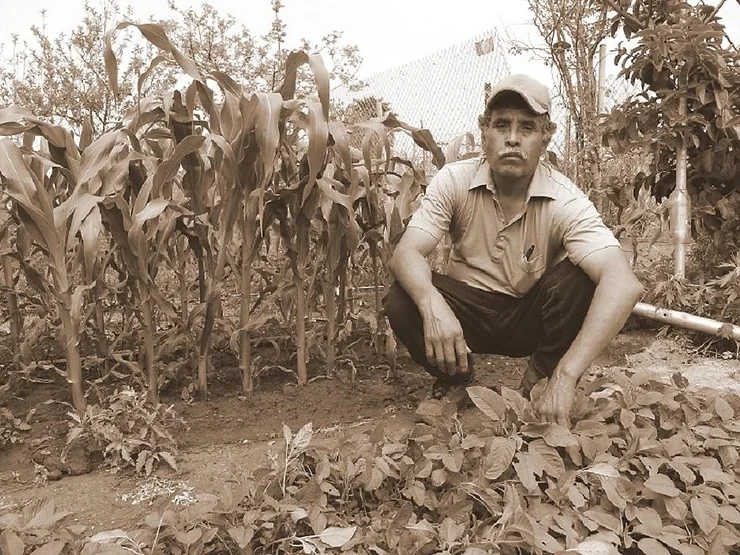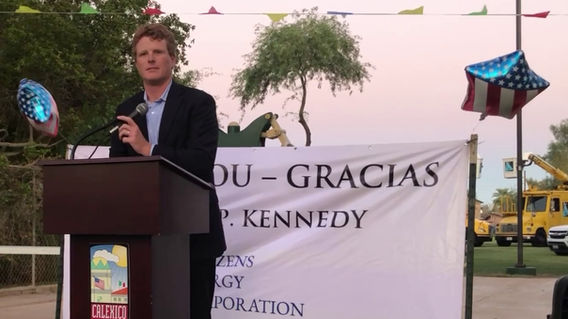Kennedy Recalls Cesar Chavez’s Message of Service
- The Arizona Republic
- By Yvonne Wingett

A 19-year-old Joseph P. Kennedy II joined Cesar Chavez and thousands of farm workers at a Santa Rita Hall Mass in Phoenix as the labor and civil rights leader ended his well-documented 24-day fast in 1972.
Tuesday, Kennedy returned to the Valley as a seasoned politician with white hair and a rousing message that paid tribute to Chavez amid cheers of “Viva Cesar!” from the 2,000 gathered at the fourth-annual Cesar Chavez Day Luncheon at Phoenix Civic Plaza.
“Wherever the poor sweat in the vineyards, wherever workers struggle in silence and hardship, wherever their families long for decent housing and health care and education, there Cesar lives,” the former U.S. representative from Massachusetts told the sold-out crowd.
“Today we recall the struggle he fought, the heartache he endured, and the difficulties we all have faced in trying to carry out his mission.”
Kennedy, the son of Robert F. Kennedy, delivered the keynote speech at the Cesar E. Chavez Foundation event that highlighted the Chavez and Kennedy families’ close political ties and personal friendships. Gov. Janet Napolitano and a long list of politicians and local leaders attended the luncheon and spoke briefly.
The focus, however, never wavered from Chavez’s message of service for the poor and fighting injustices. Speakers recalled Chavez’s fight for bathroom breaks for farm workers and his fast in Phoenix and related his message to today’s struggles.
Many farm workers are still exposed to pesticides and don’t earn the national minimum wage. Hispanic students continue to drop out of school at high rates. Infant mortality among the children of farm workers is high, life expectancy low, Kennedy said.
In Arizona, the challenge is fighting proposed legislation that targets undocumented immigrants, said Maricopa County Supervisor Mary Rose Wilcox.
She condemned House Bill 2030, which would ban undocumented immigrants from living in public housing, taking adult literacy courses and enrolling in college, among other services.
The proposed legislation cleared the House and is expected to be heard by the Senate.
“We cannot sit back and think all is fine,” said Wilcox, who urged the crowd to participate in a 25-mile walk against the bill on April 5. “You can bet (Cesar would) be there.”
Chavez, who was born in Yuma on March 31, 1927, made national headlines in 1972 when he staged a water-only fast near 12th street and Buckeye Road in opposition to a law that banned farm workers form striking or boycotting for better working conditions. It was there that the famous rally cry, “Si se puede,” or “it can be done,” was coined.
Rosario Bueno, a Headstart caseworker from Glendale, said she was inspired to apply Chavez’s message of social justice to her life.
“A lot of us will take this with us,” said Bueno, who grew up working in Texas cotton fields.
“To me, si se puede is real. I use it in just but everything I do. I want to encourage people to fight for their rights, to look for improvement.”
Several of Chavez’s children and his wife, Helen, attended the luncheon. It raised an estimated $300,000, which will help pay for educational programs and operational costs of Arizona’s office of the California-based Cesar E. Chavez Foundation.
Chavez, who died April 23, 1993, in San Luis, founded the United Farm Workers union.


